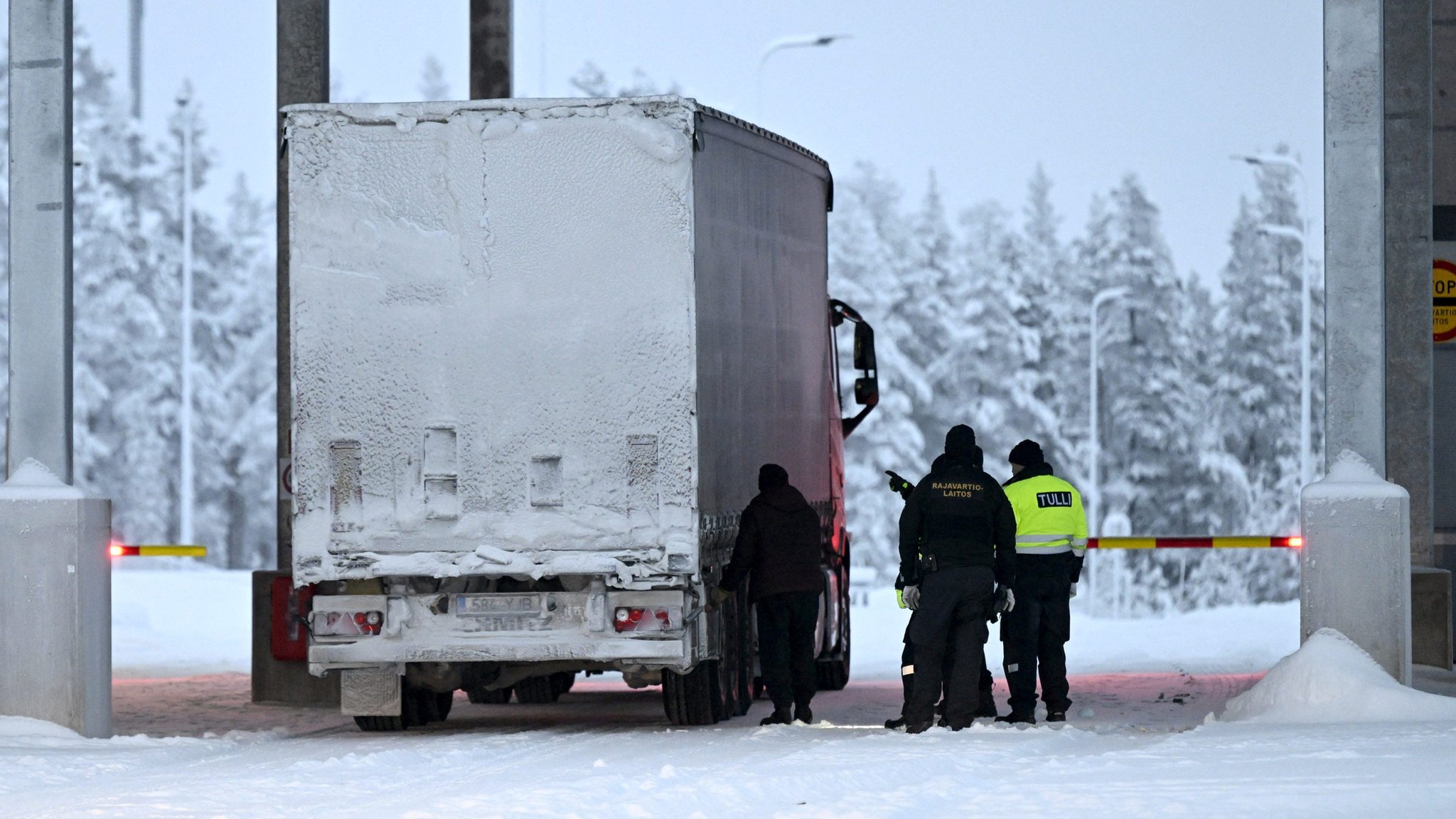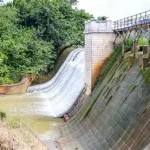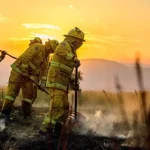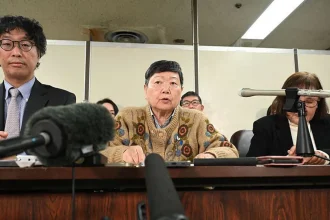Finland is closing all crossings on the Russian border after accusing Moscow of deliberately helping migrants into the country.
Seven of eight road posts have already shut over a rise in crossings this month.
The government now says the last, located in the Arctic Circle, will close on Thursday for two weeks.
Around 900 asylum seekers entered Finland from Russia in November, up from fewer than one a day on average.
They come from countries including Morocco, Pakistan and Syria, authorities say.
Finland is “determined to put an end to the crossings”, Prime Minister Petteri Orpo said in a statement.
The government says Russia is channelling asylum seekers towards Finland in what it calls an “influence operation” and “hybrid attack”, and has progressively closed more and more border posts.
The Raja-Jooseppi crossing was the last road one to remain open, but it too will be closed by Friday. A rail crossing will remain open for freight traffic.
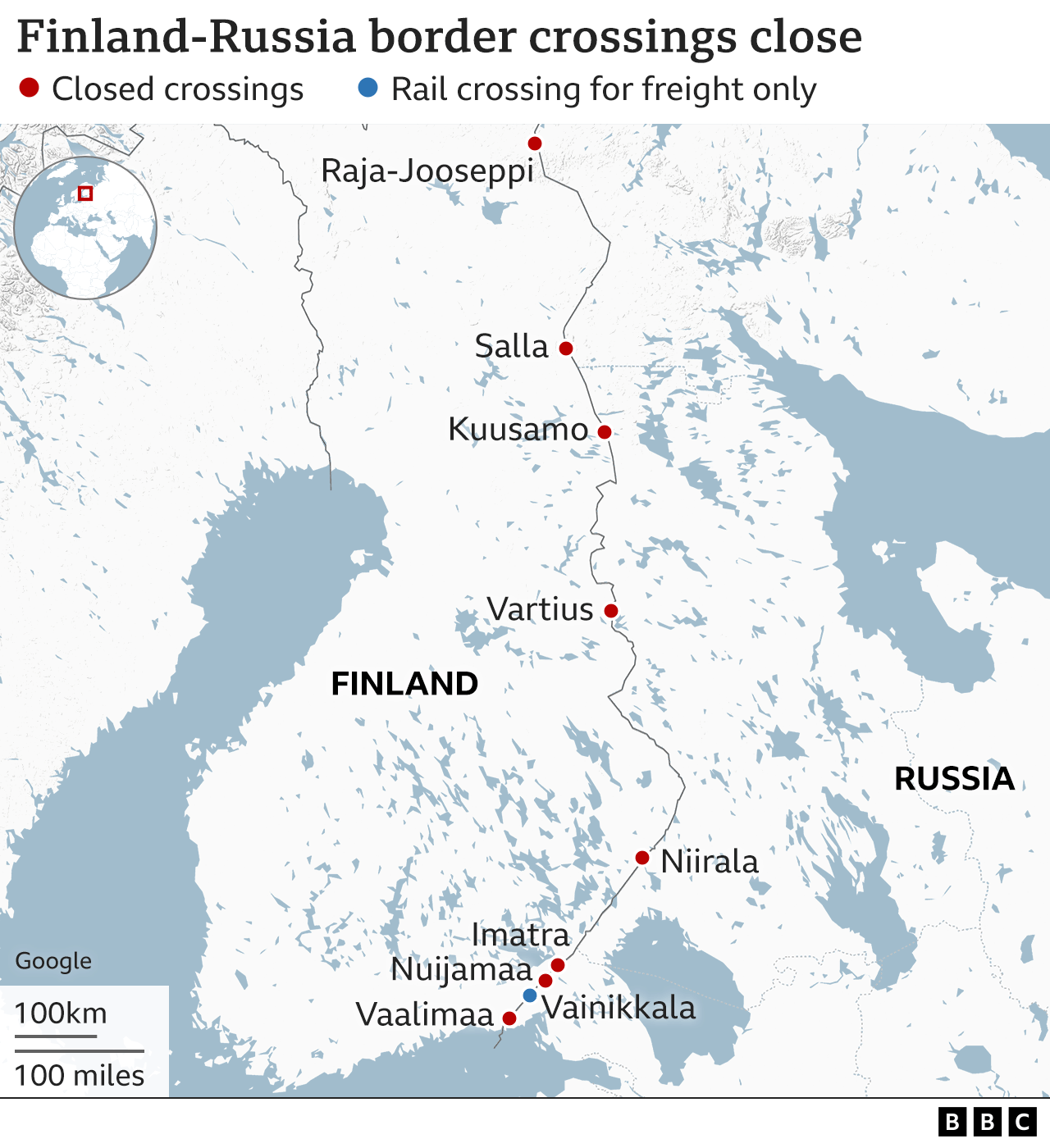

Only three migrants crossed into Finland through Raja-Jooseppi on Monday and zero on Tuesday, but the government said it was taking no chances with what it characterised as a threat to national security.
Finland’s non-discrimination ombudsman has raised concerns that Helsinki is jeopardising the right to seek asylum under international law – especially as the last remaining border crossing was around 900km (560 miles) north of the capital.
The Finnish government says people arriving by boat and air can still seek asylum.
Speaking to the BBC, Matti Pitkaniitty, a colonel in the Finnish border guard, said legal concerns over maintaining Finland’s obligations under international refugee law were “definitely” a reason for the progressive closure of the border.
Col Pitkaniitty said border guards had noticed clear evidence of Russian officials helping migrants cross into Finland, such as instances where Russian border points were closed after people crossed to prevent them returning.
Pia Lindfors, executive director of the Finnish Refugee Advice Centre, told the BBC that she feared the decision would push asylum seekers to cross away from official crossing points, through the hundreds of kilometres of forests and rivers making up the long border.
“Now winter has arrived, this could be even more dangerous,” Ms Lindfors said.
She added that despite the closures, Finnish authorities should provide help to people in need on the Russian side of the border and not push people crossing illegally back into Russia, a concept in international law known as “non-refoulement”.
“I have to trust that Finnish border guards will not break these fundamental principles,” Ms Lindfors said.


